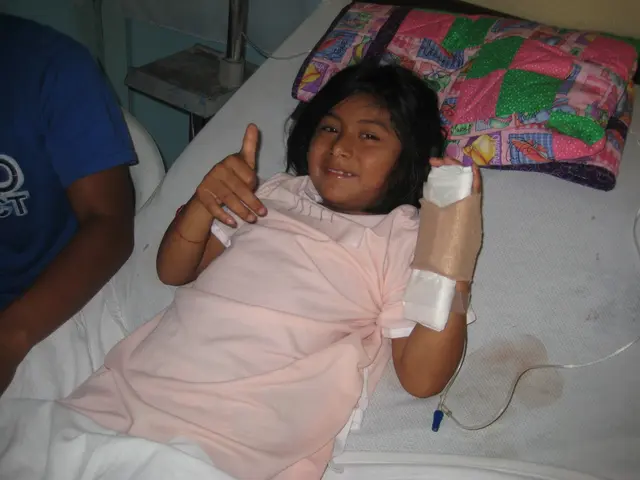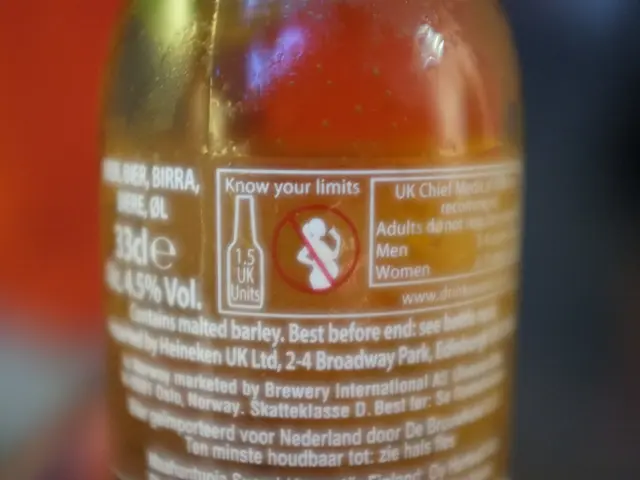Sounding the Alarm: Soaring Internet Addiction Among Teens, a Global Concern
Adolescent internet usage escalates to unparalleled heights
Let's face it, folks – social media has become a global phenomenon, with over 4.7 billion users stomping their digital feet on platforms such as Facebook, YouTube, TikTok, and Instagram. While connecting the world is fantastic, it's crucial to recognize the possible perils, particularly among young people. A leading child protection organization, KidsRights, has issued a grave warning: mental health problems amongst children and adolescents are skyrocketing, and social media's unchecked spread is exacerbating the issue.
According to KidsRights' latest report, collaborating with Erasmus University in Rotterdam, one in seven children aged 10 to 19 is grappling with mental health issues. "This year's report is a much-needed wake-up call that we can no longer ignore," said Marc Dullaert, the organization's chair. Youth mental health has reached a critical juncture, inflamed by social media platforms that prioritize user numbers over the well-being of minors.
The teenage mental health crisis is worsening, with the problematic use of networks like Instagram and TikTok on the rise.
United Kingdom Study: Mentally Ill Youth More Prevalent on Social Media
Studies have suggested a correlation between excessive social media and internet use and an increase in suicide attempts among the youth. Despite official figures indicated six suicides per 100,000 youngsters aged 15 to 19, KidsRights deems this number the proverbial "tip of the iceberg," as unrecorded suicides due to social stigmatization are prevalent.
In Europe, the risk of young, impressionable 13-year-olds getting entangled in harmful online activities is relatively high, with 13% of this age group exposed, according to KidsRights' annual examination of children's rights observance in 194 countries. The situation is even more concerning among 15-year-olds in Europe, where almost 40% suffer from internet addiction, a record-breaking statistic.
Instead of imposing blanket internet bans on minors, KidsRights advocates for comprehensive global research into the effects of social media usage on young people, as well as improved education and professional development for psychologists.
"We urgently need concrete measures to ensure that the digital revolution not only fosters the well-being of the world's 2.2 billion children but also does not jeopardize it," KidsRights chief Dullaert requested, insisting that half-measures are no longer sufficient.
Last week, EU digital ministers deliberated over the call by certain European countries to ban online networks like TikTok, Instagram, and YouTube for children. Nations such as France, Greece, and Denmark advocate for these platforms to be accessible only from the age of 15 and for stringent monitoring of user ages. They've urged the EU Commission to propose EU-wide binding guidelines in this regard.
In theory, age restrictions already apply to online networks. However, users only need to input a birthdate during registration, and age verification is notably absent.
A Call to Action
In light of these trends, it's evident that we must address social media's negative impact on young people and their mental health. This requires a comprehensive approach that encompasses responsible social media use, mental health support, and awareness about potential risks. Let's strive to ensure that the digital revolution benefits all children and not compromise their well-being.
- To mitigate the growing mental health issues among young people due to excessive social media use, KidsRights advises the implementation of comprehensive global research, improved education, and professional development for psychologists, rather than imposing blanket internet bans.
- Recent studies suggest a connection between excessive social media and internet use among the youth and an increase in suicide attempts, echoing the concerns raised by KidsRights about the prevalence of unrecorded suicides due to social stigmatization.
- The Community policy should prioritize health-and-wellness, mental-health, and science to address the problematic use of social media platforms, such as Instagram and TikTok, among youth, as these platforms are contributing to the critical state of teenage mental health.







